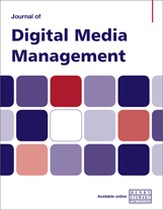Problematic content in our collections: A study of harmful content statements
Abstract
Online access to archival resources has motivated repositories to address the outdated content and harmful materials in their collections. Within this context, an important undertaking is the publication of harmful content statements on public interfaces, in addition to the attachment of warnings to the digital materials themselves. This kind of work is a significant step for institutions seeking to centre restorative justice in their work and privilege community voices, values and knowledge. This paper analyses 98 harmful content statements to understand their structure, language and themes. The analysis reveals that these statements share some commonalities but also vary widely. The paper concludes with recommendations regarding the construction or revision of harmful content statements.
The full article is available to subscribers to the journal.
Author's Biography
Katherine M. Wisser is an associate professor at the Simmons University School of Library and Information Science, where she teaches introductory and advanced courses on diverse topics within the field of information and archival services. Her research has appeared in a number of publications, including Archival Science, American Archivist and the Journal of Contemporary Archival Studies. In addition to holding a BA and MA in history, and an MSLS and PhD in information science, she is a Distinguished Fellow of the Society of American Archivists. She has also held various leadership positions with the Society of American Archivists, including chair of the international Encoded Archival Context Working Group, responsible for Corporate bodies, Persons and Families (EAC-CPF).
Jacob D. Savory is a NAGPRA Curatorial Assistant at the Peabody Museum of Archaeology and Ethnology at Harvard University, where he works with Tribal Nations across the continental USA to repatriate and return ancestors, funerary objects and other cultural items to their source communities. He holds a bachelor of arts in English from Oklahoma State University and a master of science in library and information science from Simmons University. His professional interests focus on ethical stewardship practices across libraries, archives and museums, to include the reparative description and repatriation of cultural items. As a member of the Society of American Archivists Archival Repatriation Committee, he works to promote responsible, culturally sensitive and community-led repatriation practices in archival contexts.
